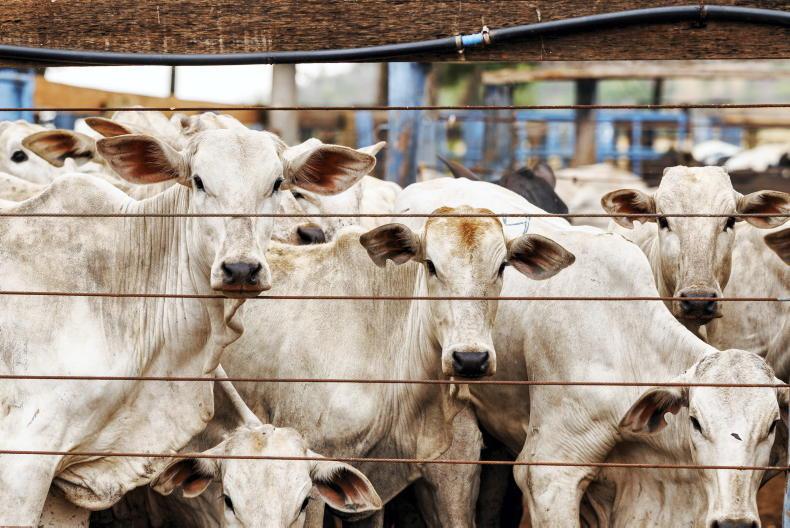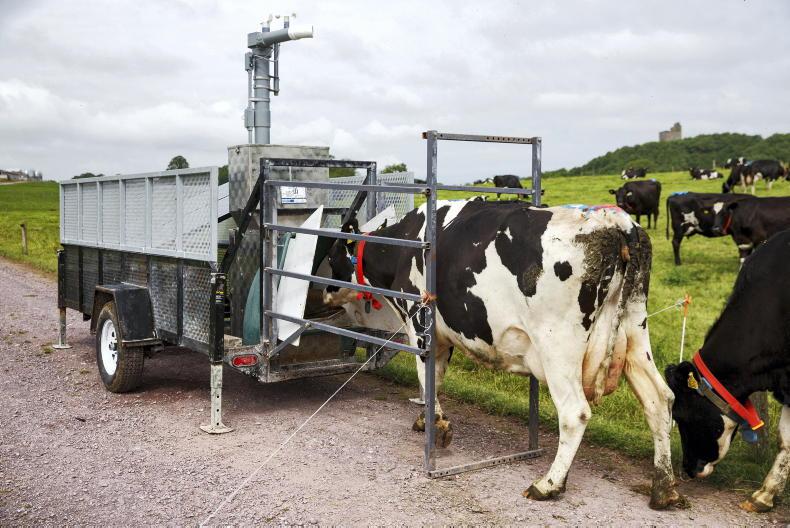The UK Farmers Weekly publication reported this week that an investigation by the National Food Crime Unit, part of the UK food standards agency, is under way about South American and European beef being presented as British. This puts the spotlight back on product integrity a decade on from the horse meat scandal.
The top three supermarkets in the UK are Tesco, with 27% of all grocery sales, followed by Sainsbury’s on 15% and Asda on 14%.
Between them, they account for 56% of all grocery sales and they offer their customers British and Irish beef.
The remaining seven retailers in the top 10 all claim to offer their customers exclusively British beef.
Fake Rolex
UK cattle have been, for several years, the most expensive in Europe and, therefore, sourcing exclusively UK beef is an added cost for customers dedicated to using it exclusively.
Part of the reason for the three largest supermarkets having a blend of Irish beef is to ensure volume of supply of beef, with the Irish element much cheaper until recent weeks.
With UK cattle being so consistently expensive, it means that factories will always have the most expensive product on offer.
Making that product cheaper means either the factory supplying or the retailer or caterer crossing the line and mixing in a proportion of non-British beef sourced from a lower cost area of the world.
Product integrity was overlooked, so long as the price was right
If this activity is engaged in, it is fraud, similar to a jeweller passing off a fake Rolex watch as the real thing or a farmer using green diesel (red in the North) in road vehicles when legally obliged to use unmarked white diesel, which carries a higher tax element.
Fraud needs opportunity and reward
Just over a decade ago at the start of 2013, the red meat industry was rocked by the discovery of horsemeat being mixed into manufacturing beef used in the manufacture of low-cost burgers.
The industry defence at the time was that it was sourcing a red meat product from traders, with price and red meat content being the key specification requirements.
Product integrity was overlooked, so long as the price was right.
Many reputable meat processors, retailers, catering and pie manufacturers became entangled in this.
The defence of not knowing what product was in the supply chain provided something of a fool's pardon for the supply chain at the time, with the resolution that it would never happen again.
Factories and their customers put in place much more rigid scrutiny and due diligence on product sourcing and the problem was generally accepted as being solved.
Money to be made
Fast forward a decade and if it is confirmed that non-British beef has been labelled as British and passed off as this, then it is also a fraud.
Fraud happens where there is opportunity to engage in it and it is financially attractive to engage in it.
With the price of Brazilian carcase beef running €2.50/kg behind the price in Britain and Brazil closed out of China, it suggests that money could be made if someone chose to pass a Brazilian product off as British.
The other reality is that if non-British beef was used in a product that was labelled as British, consumers are unlikely to ever find out because it is likely that a Brazilian beef product will eat just as well as a UK product.
This can be compared with driving a car with illegal marked diesel instead of the proper clear product with all taxes paid - it will drive just as well and nobody will know except the person that filled it and an inspector if they do a check.
Protecting product integrity
Farmers in the UK and Ireland are correctly fiercely protective of the brand integrity of the product that leaves their farms.
We are in one of the highest cost producing areas in the world because of full compliance with welfare and environmental standards. It is abhorrent if others can infiltrate this product with a lower-cost substitute that performs similar to consumers.
It is absolutely essential that if and where such fraud is found, it is exposed and the full force of the law is used to act as a deterrent to anyone contemplating such activity.
It was thought that the processing, retail and food manufacturing sectors learned a decade ago the absolute need for product integrity.
It is unfortunate that the Farmers Weekly report left it hanging when it came to naming who was involved.
Until this is done and the scale of any fraud established, it leaves a cloud over the entire beef supply chain, which is in nobody’s interest.









SHARING OPTIONS